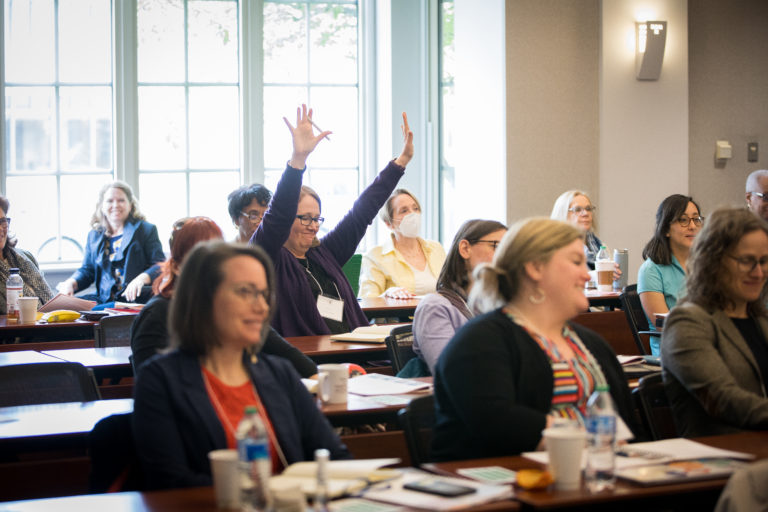
Ideal candidates for Iron Sharpening Iron are women who are proactive, committed, and curious. You should be willing to work with other women and coaches as part of a cohort, sharing stories, best practices, and challenges. It is also important to be receptive to feedback and confident enough to admit what you don’t yet know.
You’ve shown up for your congregation, your community, your denomination, your peers. You are looking for a way to take both the natural and cultivated abilities you have, and weave together a compelling story for why you’re ready for the next opportunity or expression of your call.
Women clergy are dramatically underrepresented in positions of leadership, and the church has made relatively little gain over the last decades in advancing gender equity among clergy at all levels of the profession, particularly at the most senior levels of congregational leadership. According to data from the most recent National Congregations Study (2012), women serve as the senior or head clergyperson in only about 11% of congregations in the United States, a number that is largely unchanged from 15 years ago. This is a grave problem for the health, vitality, and integrity of the church.
Many professions and industries are increasingly turning to leadership development programs specifically for women as a way to address this gender gap. Yet, the church does not have similar programs to invest in women leaders at this level. Such programs as do exist often take the form of support groups for female clergy, which presume women are deficient and do little to equip participants for the complex task of congregational leadership in the 21st century. We will fulfill this unmet and pressing need by investing in gifted women leaders and providing access to cutting-edge executive education.




